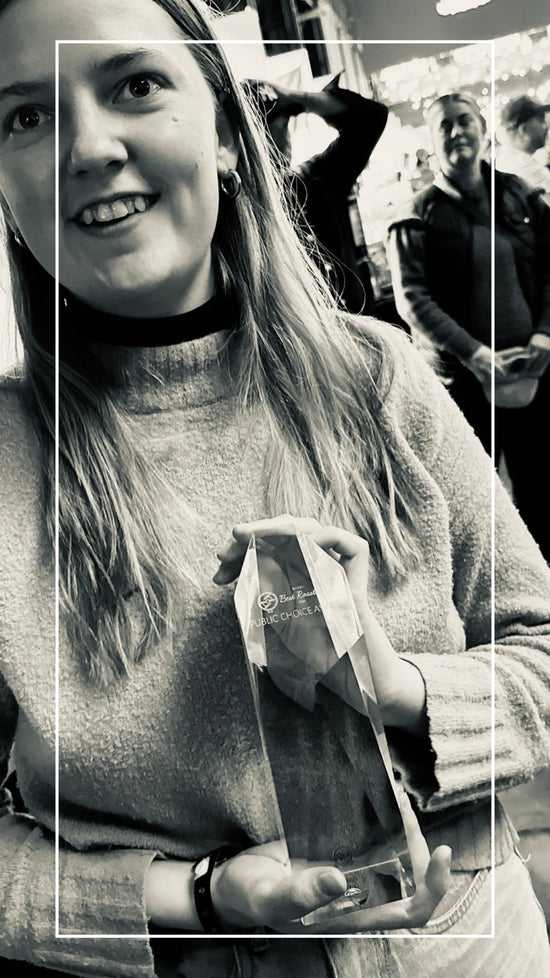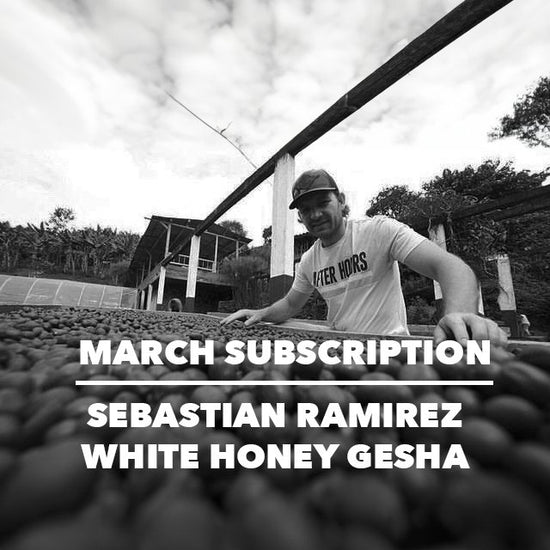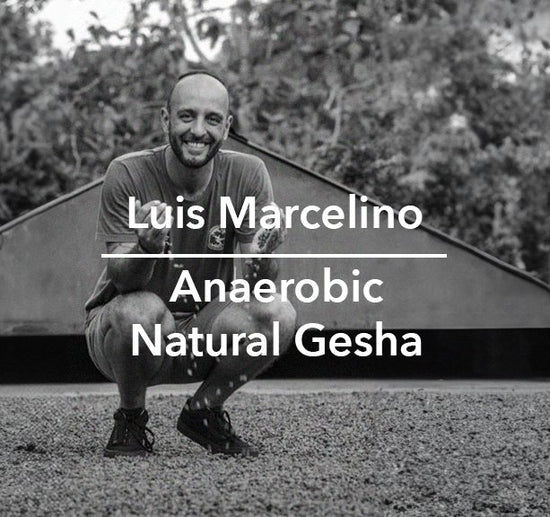5 years ago, Nestor Lasso and his brother Adrian took over the family farm and branched out into specialty coffee and experimentation rather than growing coffee like their parents.
Today, at 22 and 24, the two brothers have teamed up with Jhoan Vergara, also the child of a coffee farmer, to create El Diviso. El Diviso brings together the two-family farms, El Diviso (Nestor and Adrian Lasso) and Las Flores (Jhoan Vergara), close to the town of Pitalito, in the Huila region of Colombia. This partnership was great as these 3 young guys united their knowledge to improve quality.
Then, 3 years ago, Cat & Pierre, founders of CATA Export and the 3 producers started a journey of trial and error to define the fermentation processes and protocols at the farm, with the aim to linked these coffees directly to the UK market. This learning process has been time and money consuming but with an exciting outcome as today these coffees have been used in many barista competitions across Europe.
Recently winning 1st place at Brewers Cup in Ireland and 3rd in Austria. Today Cata Export and Finca El Diviso work as one team, the reason why Cat is not alone in this trip to the UK but with Nestor to finally meet all the roasteries who have been behind this process too. Nestor’s and Cat’s friendship is a good example of what Cata Export do, working directly from the farms is a very enriching process for them not only for the complexity of topics such as agronomy but also for the relationships Cata builds which ultimately translate into an economic benefit for Cata’s community, in this way many more young producers like Nestor have stayed in coffee and have had the chance to build a career.
NESTOR’S WORDS:
I grew up in a vereda (locality, editor's note.) called Normandia, near the town of Pitalito in the south of the Huila region. I always grew up on the farm and since I can remember the region has always been a coffee zone. Here I had a very healthy childhood, everyone knows each other and it's safe. The memories I have of my childhood are of playing in nature, playing hide and seek and I have always been super happy to be here. In general, being a coffee producer is poorly paid and it is not very attractive.
The only thing that allows producers not to starve is to eat the fruits and vegetables produced on the farm. In terms of material goods, we only have access to what is strictly necessary. Many young people therefore prefer to go to town to find an office job or a less physically demanding job because they think that the coffee is not worth it. Beyond what specialty coffee brings economically, I have always had a passion for production. When I realized that specialty coffee offered a real possibility of economic development, and that in addition I could develop my knowledge of coffee production, and in particular the processes, I really got into it.
I understand more or less how the market works due to the close partnership we have with Cat and Pierre but also social networks allow us to see who is buying our coffees. They also allow us to see how specialty coffee is marketed in Europe. Cat told me the importance of the sensory side of the business and she encouraged me to learn to cup to control the quality of what is produced and to understand the impact of the processes and whether they improve or not in the cup.
Also, in Colombia there is a program we followed funded by the Colombian state and today this program is recognized as the best coffee growing school in Latin America, called SENA. We learned a lot at SENA, me and my brother. All the theoretical bases, the science of coffee processing… everything is taught there. But the reality of the job of coffee producer is learned in the field. We must not forget that the price of coffee is very high currently reason why lot of producers want to know how we work, but we quickly identify people who are really motivated to produce specialty coffee, who come to ask us questions to learn with us and those who only see it as a temporary opportunity to earn money.
What really makes the difference is the passion that the producer can have for the coffee.
If you're not naturally passionate, you'll never get the trick! Often, some coffee growers here have a lot of money because they have a lot of land and the best machines possible. But specialty coffee does not interest them, they do not see the point of changing because they are not as passionate about coffee as we are. I have noticed that specialty coffee consumption has changed a lot recently in the country. Until recently, Colombians only drank coffee by-products, anything that could not be exported. But people here have realized that coffee is a much more noble product than it seems. Many producers today keep part of their harvest to roast it themselves and drink it at home. All the specialty coffee craze has really brought about a different way of looking at coffee.
- Nestor Lasso




